Idea by
Federico Taverna
Call for ideas 2021
The Ordinary Room
The Ordinary Room
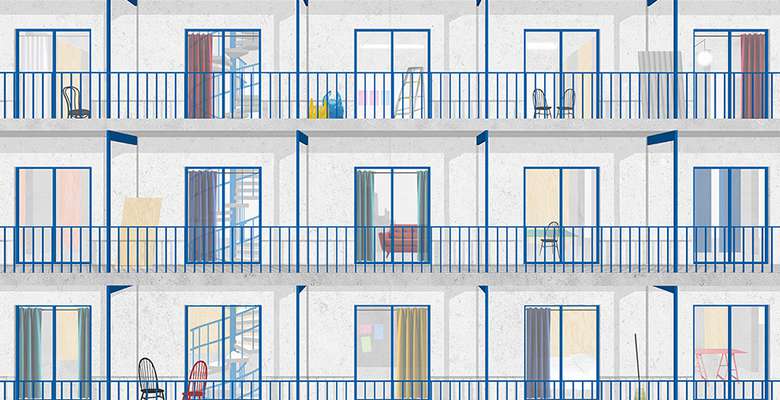
- New alliances
The conditions that contemporary forms of cooperative housing are facing, question the relation between the status of residential forms and the integration of new patterns of life within the Brussels’ housing condition.
An opportunity to introduce new settings of domestic life, lies in the process of self-building and adaptation of the domestic interior.
From this point of view, the project explores a dwelling typology where the hierarchies within the spaces of the home are dismantled, and where the domestic interior is conceived without the traditional specification. Through a labor-based process of construction, the fabrication of the domestic space confers authorship to the inhabitants, that constantly re-configure the idea of home.
The domestic space is investigated not as a finished product, but as a space in continuous fabrication within the cooperative. Therefore, the evolving nature of the dwelling mirrors what it means to live today, while offering future alternatives.
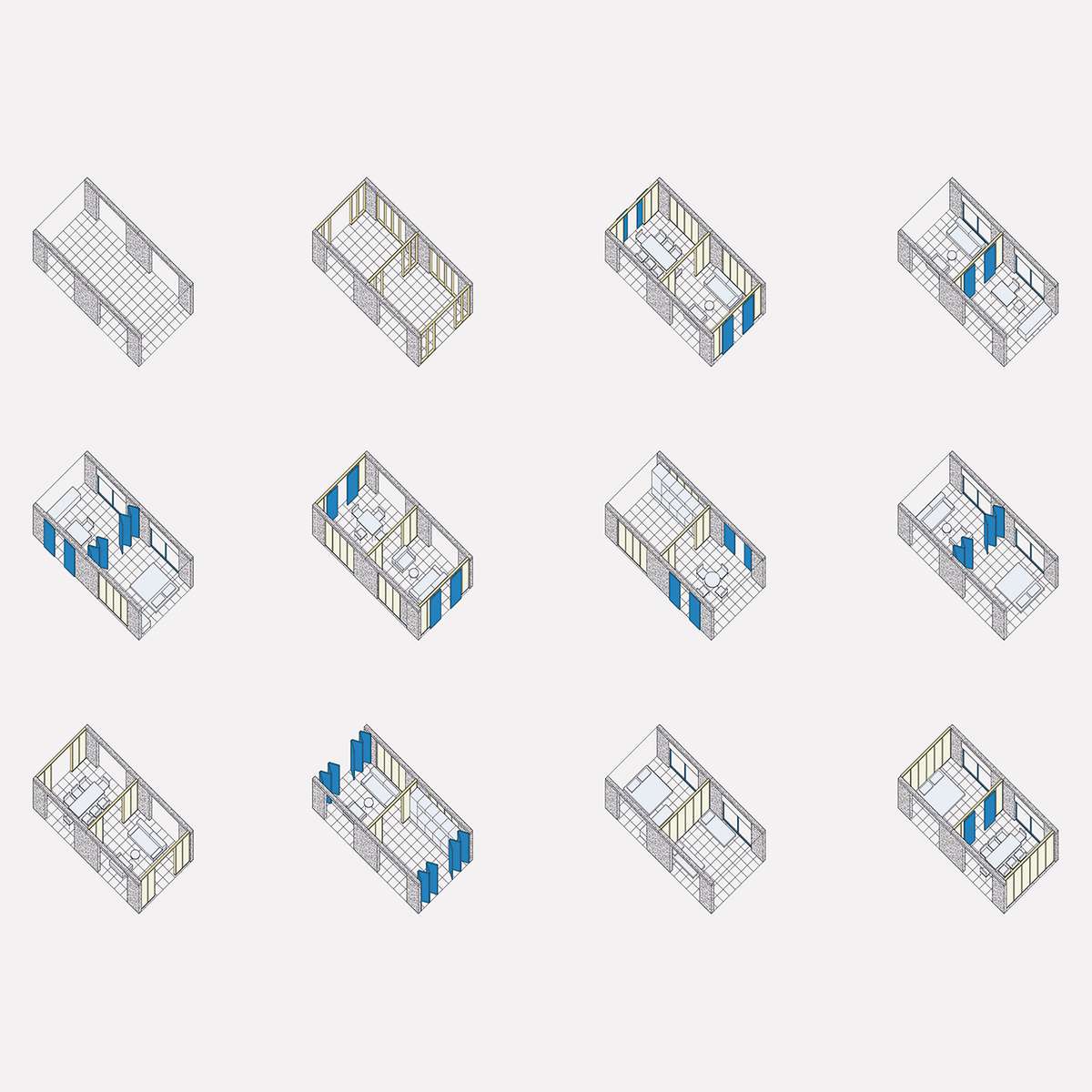
Proximities and partitions: alternatives for internal configuration
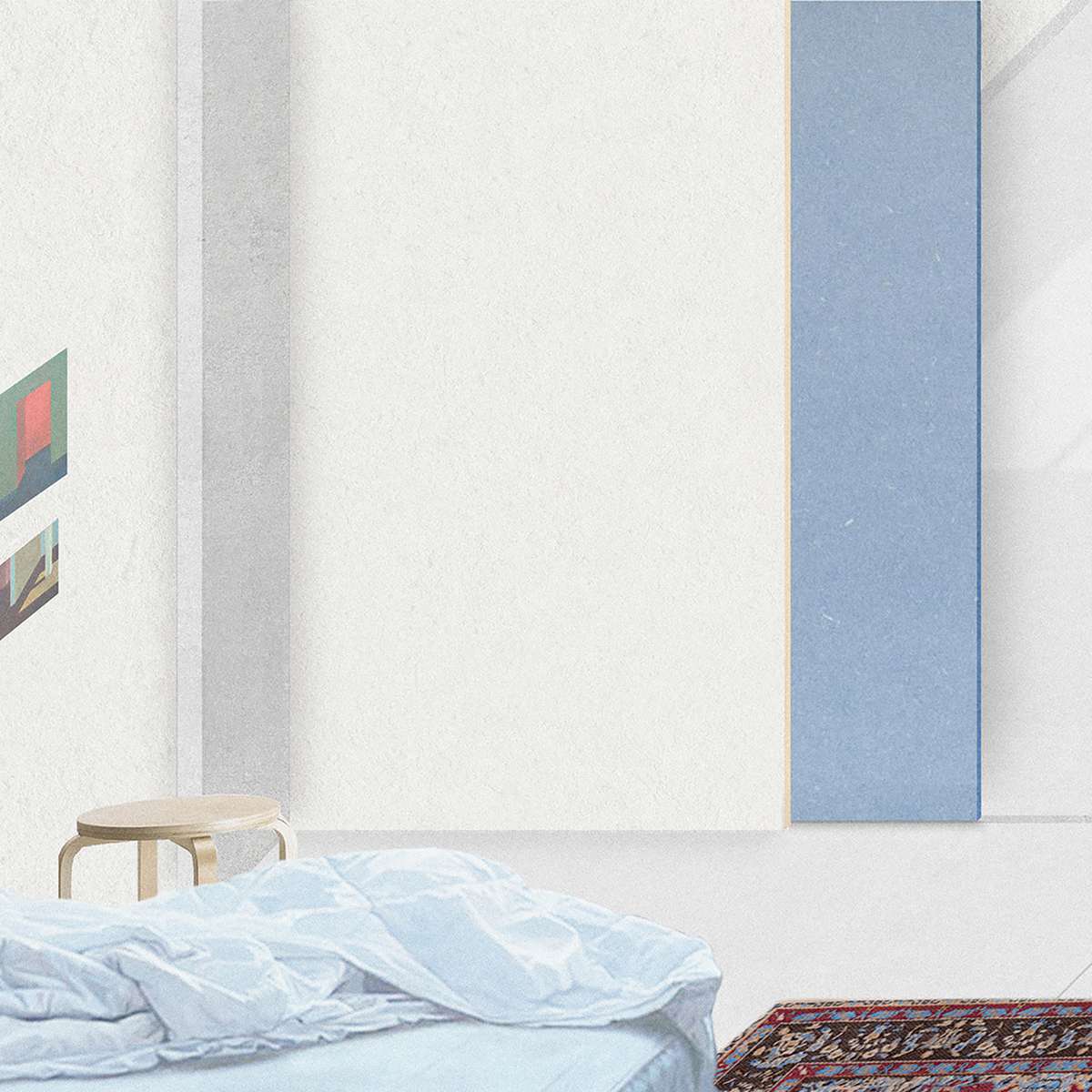
Possibility of internal adaptation
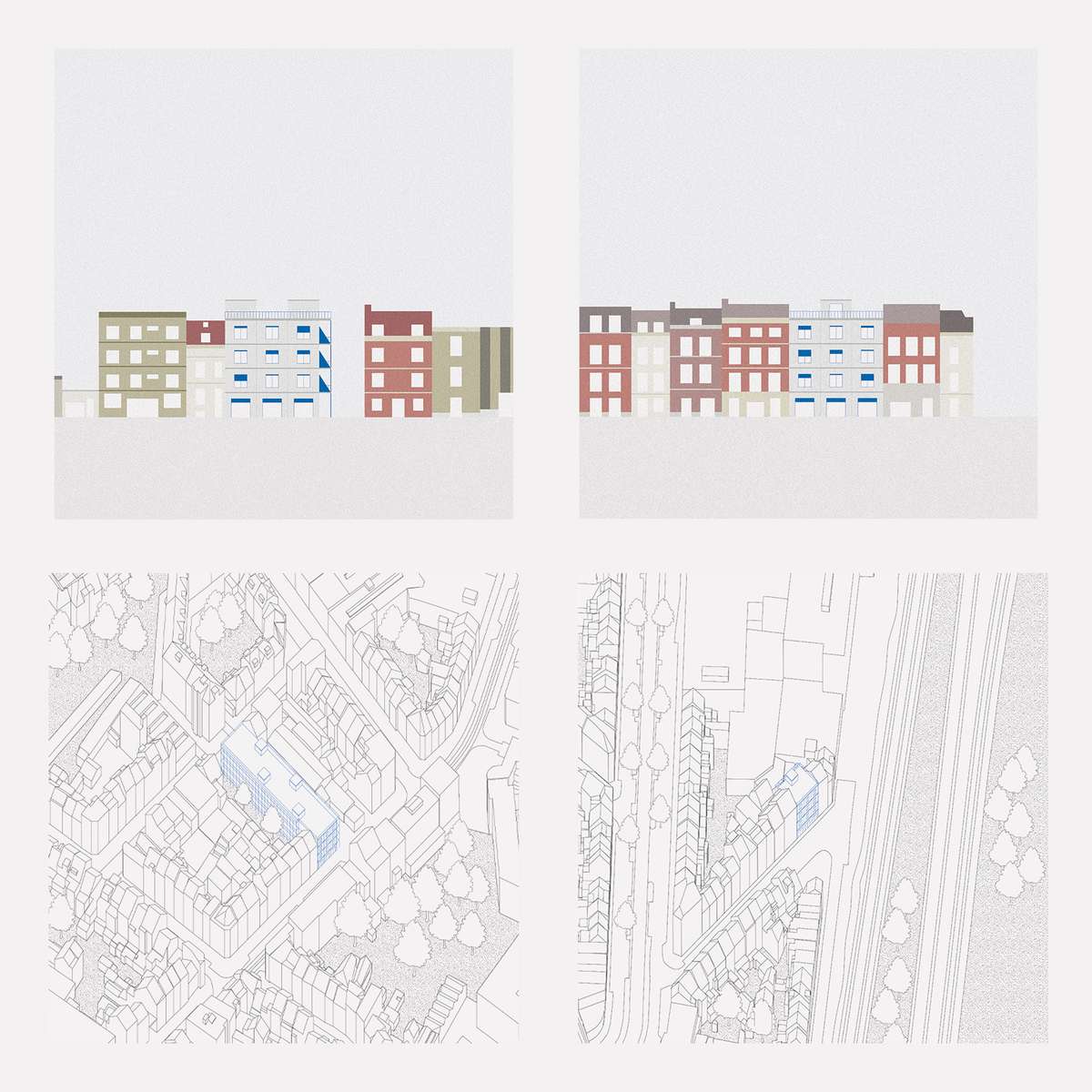
Application of two building typologies
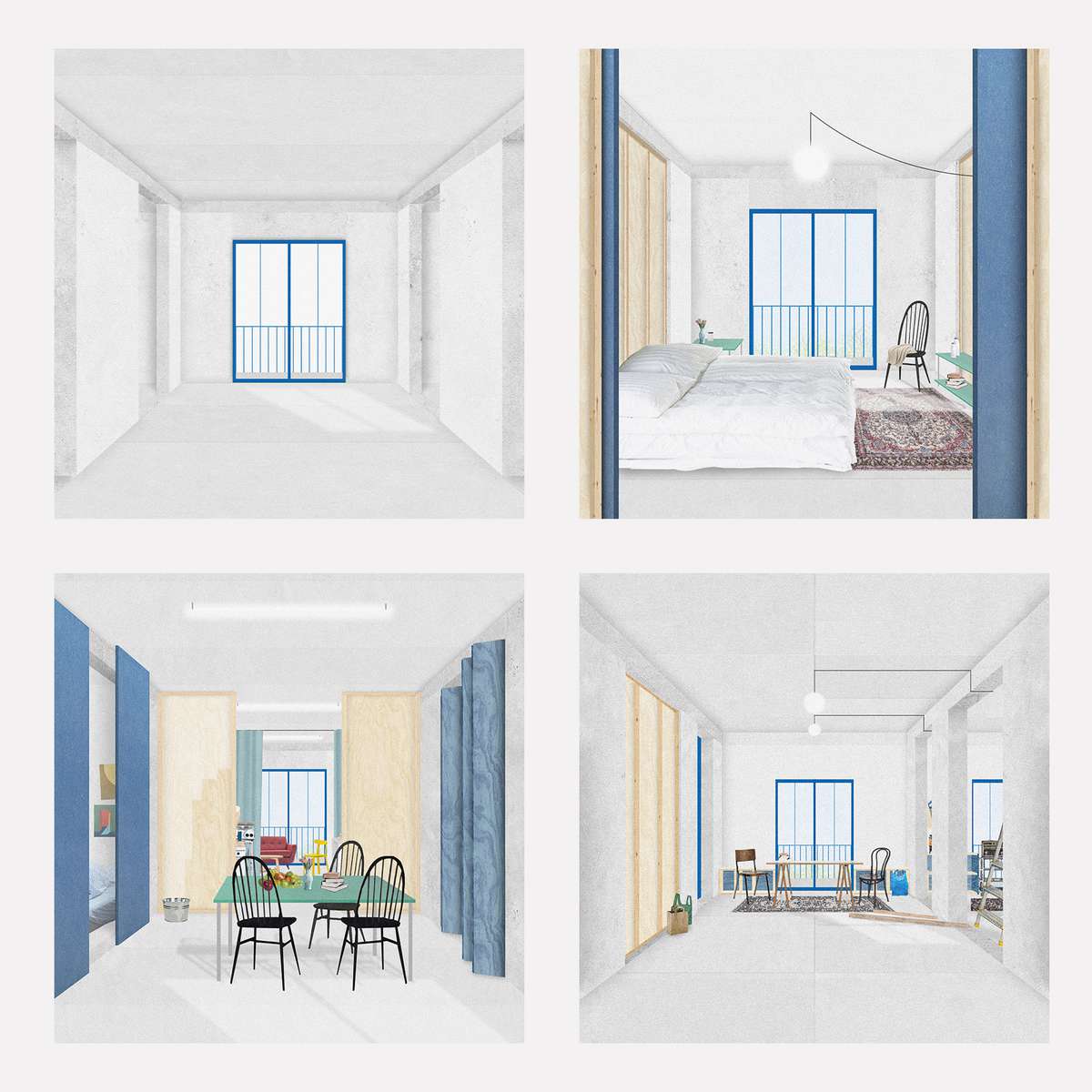
Sequence of interconnected rooms: private units and cooperative spaces
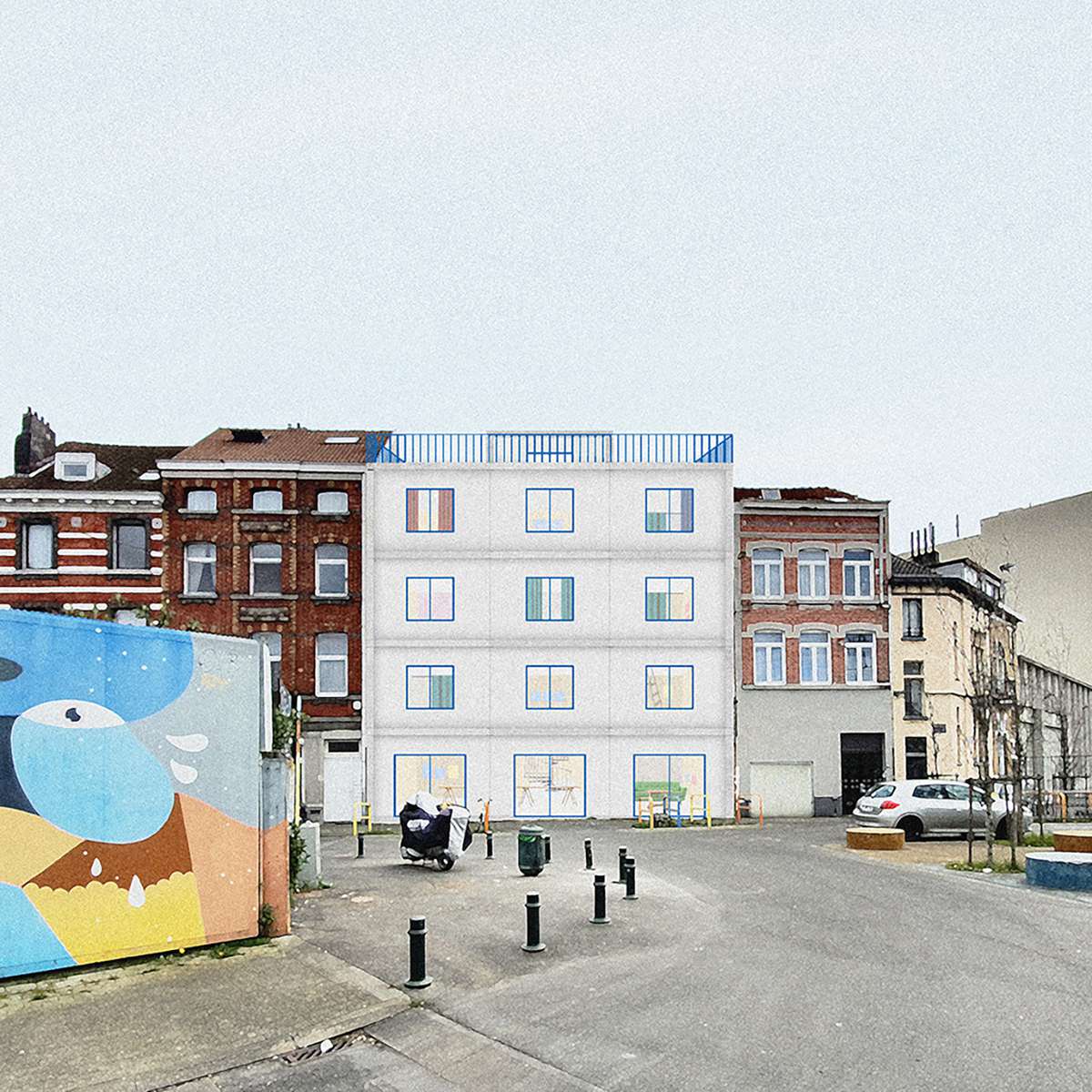
Cooperative building: assemblage of structural components
The Ordinary Room
The Ordinary Room

- New alliances
The conditions that contemporary forms of cooperative housing are facing, question the relation between the status of residential forms and the integration of new patterns of life within the Brussels’ housing condition.
An opportunity to introduce new settings of domestic life, lies in the process of self-building and adaptation of the domestic interior.
From this point of view, the project explores a dwelling typology where the hierarchies within the spaces of the home are dismantled, and where the domestic interior is conceived without the traditional specification. Through a labor-based process of construction, the fabrication of the domestic space confers authorship to the inhabitants, that constantly re-configure the idea of home.
The domestic space is investigated not as a finished product, but as a space in continuous fabrication within the cooperative. Therefore, the evolving nature of the dwelling mirrors what it means to live today, while offering future alternatives.
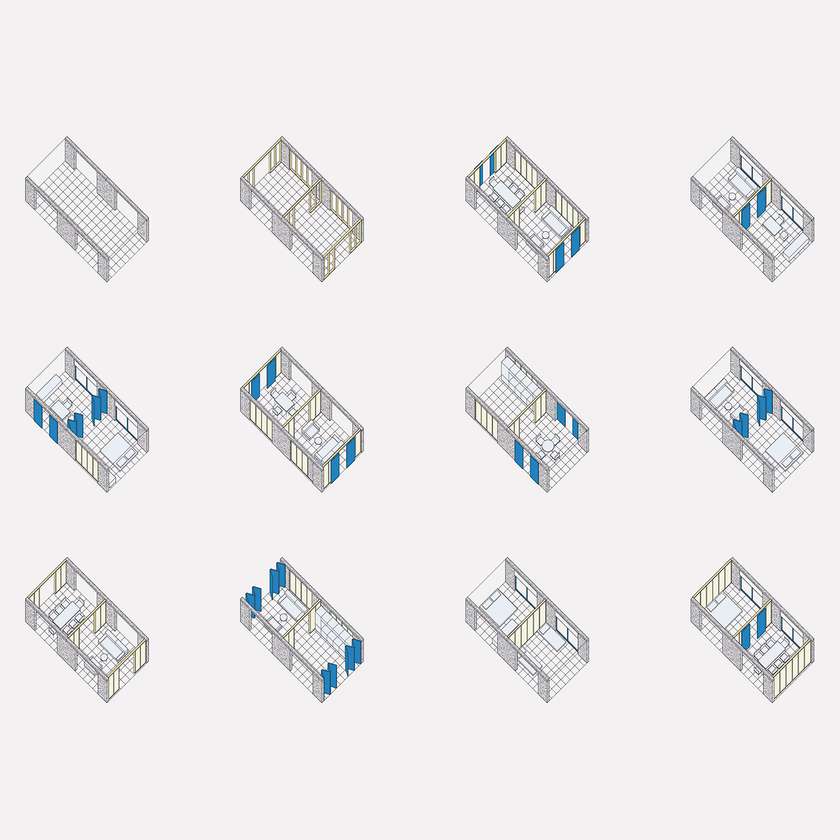
Proximities and partitions: alternatives for internal configuration
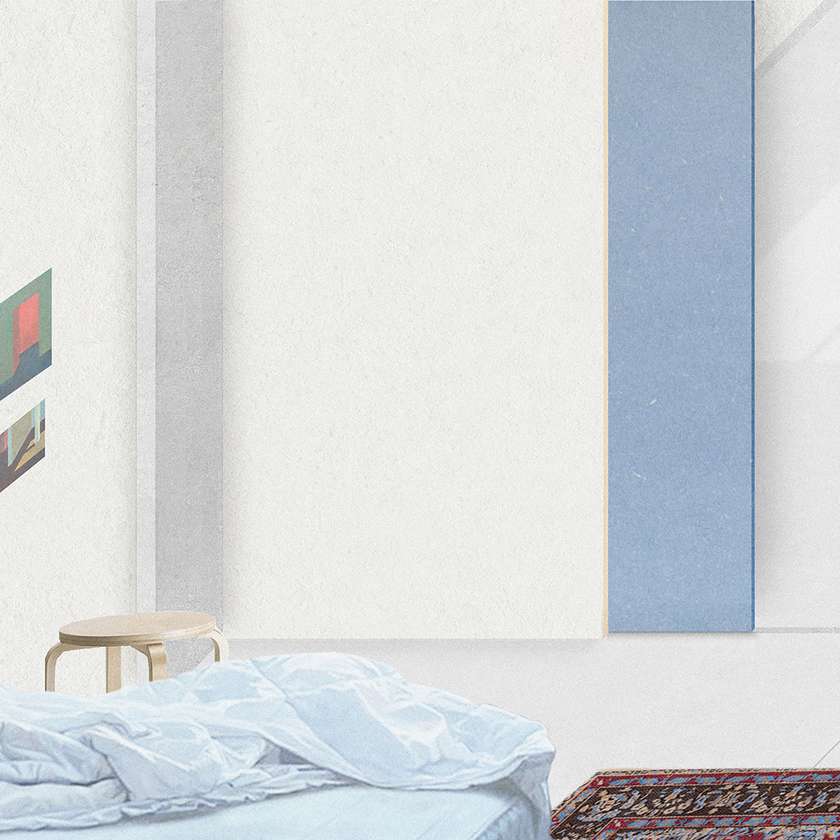
Possibility of internal adaptation
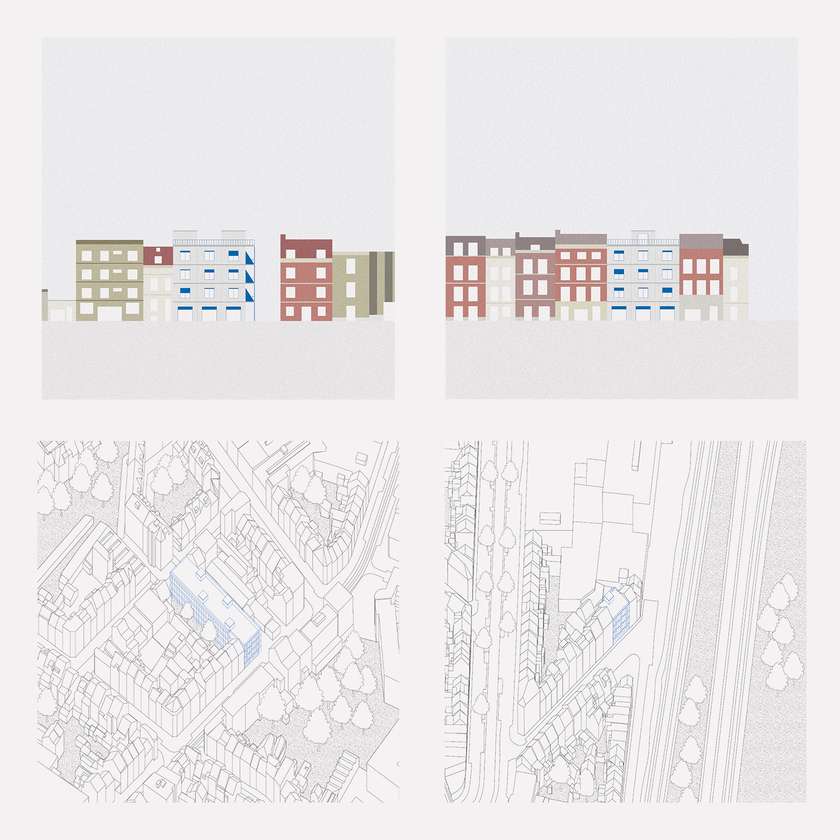
Application of two building typologies
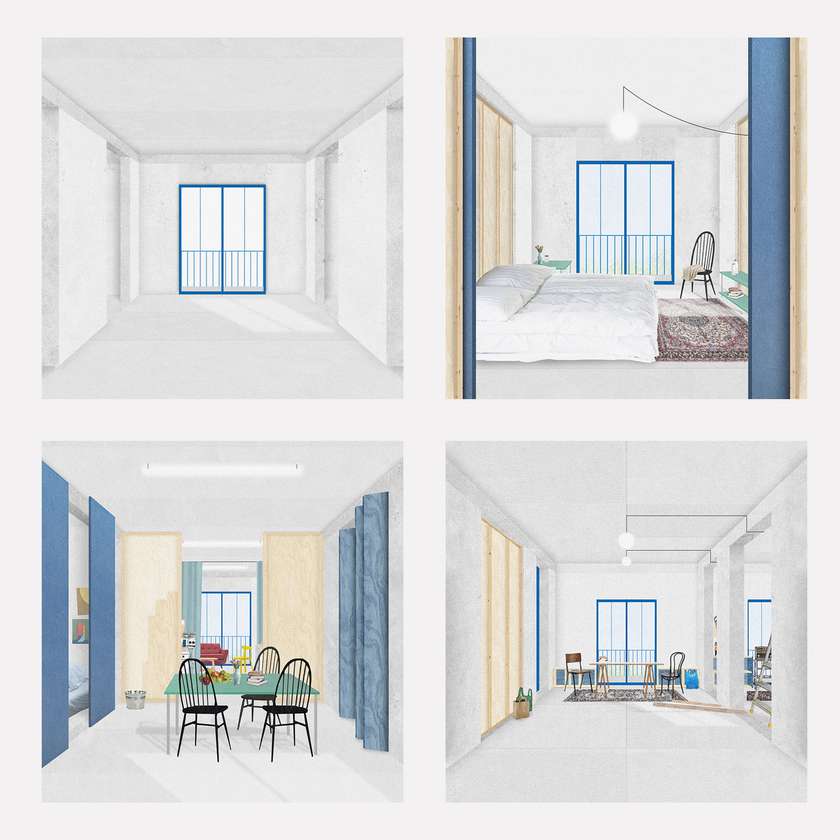
Sequence of interconnected rooms: private units and cooperative spaces
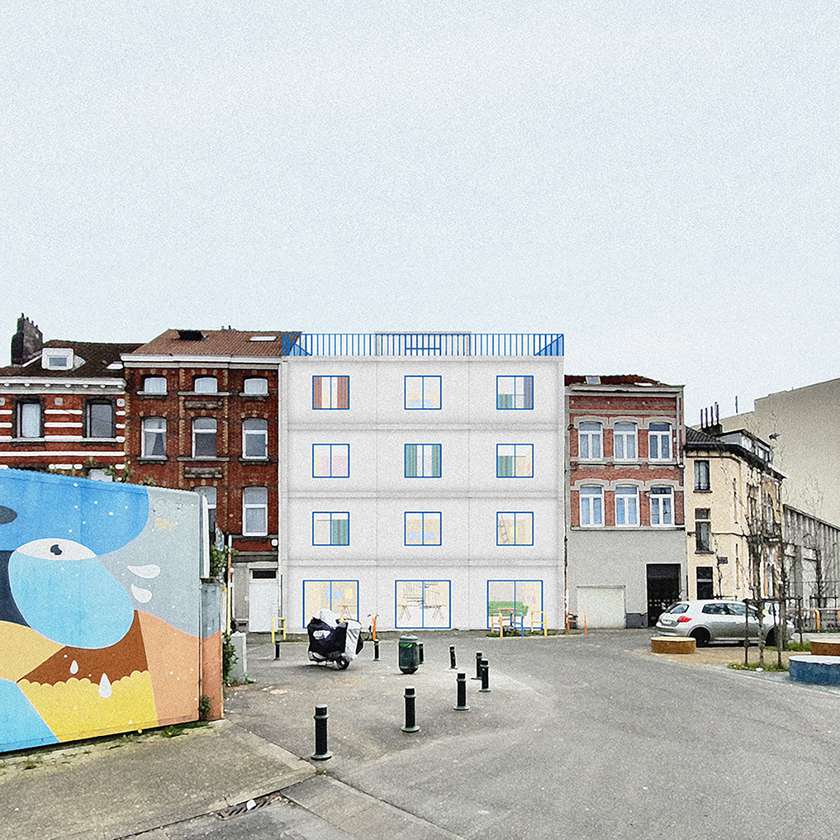
Cooperative building: assemblage of structural components